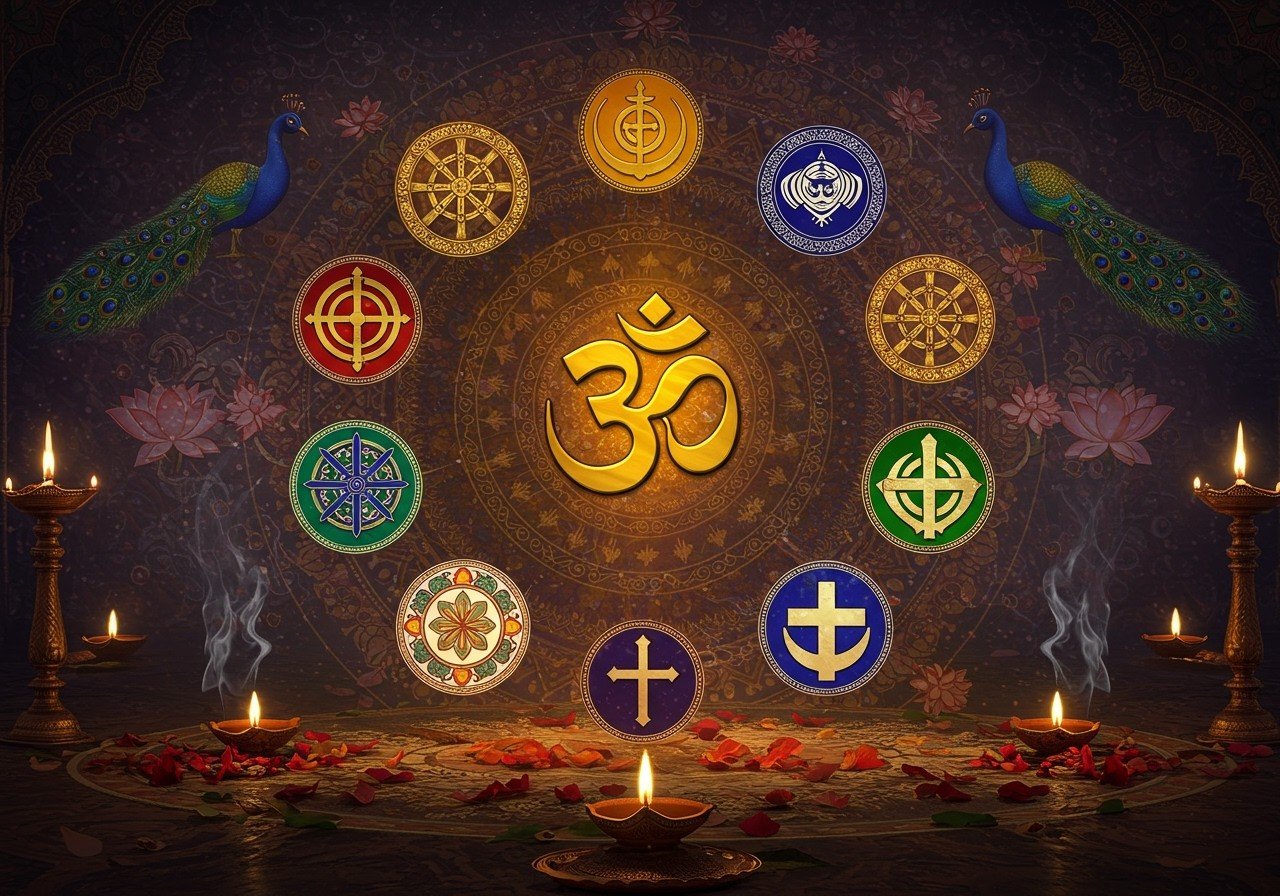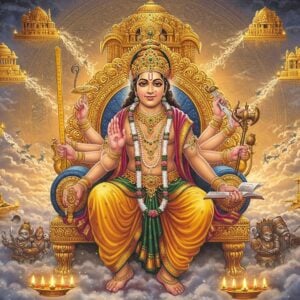
India, a land of vibrant cultures and ancient traditions, is renowned for its unparalleled religious diversity. This spiritual richness has shaped the nation’s identity, influencing its art, architecture, literature, and daily life. This exploration delves into the major religions of India, providing insights into their core beliefs, practices, and significance.
Hinduism: The Predominant Faith
Hinduism, the majority religion in India, represents a complex tapestry of philosophical schools, deities, and rituals. Central to Hindu belief are the concepts of dharma (righteous conduct), karma (the law of cause and effect), and moksha (liberation from the cycle of rebirth). The Vedas, Upanishads, and Bhagavad Gita are revered scriptures offering guidance on spiritual living. From the ancient rituals of Vedic times to the modern interpretations of Hindu philosophy, this faith continues to evolve and inspire millions.
Devotees worship a diverse pantheon of gods and goddesses, including Brahma (the creator), Vishnu (the preserver), and Shiva (the destroyer), along with their consorts and incarnations. Festivals like Diwali, Holi, and Navratri are celebrated with great enthusiasm, marking important events in Hindu mythology and offering opportunities for communal worship and celebration.
Explore the divine feminine in Hinduism through our dedicated blog post.
Islam: A Faith of Devotion and Community
Islam, the second largest religion in India, emphasizes submission to the will of Allah (God). Muslims adhere to the Five Pillars of Islam: Shahada (declaration of faith), Salat (prayer), Zakat (charity), Sawm (fasting during Ramadan), and Hajj (pilgrimage to Mecca). The Quran, believed to be the direct word of God, and the Hadith (teachings and practices of Prophet Muhammad) serve as primary sources of guidance. Mosques serve as vital community centers, providing spaces for prayer, religious education, and social gatherings.
Christianity: A Message of Love and Compassion
Christianity, with its roots in the teachings of Jesus Christ, emphasizes love, forgiveness, and compassion. Christians believe in the Holy Trinity – God the Father, God the Son (Jesus Christ), and God the Holy Spirit. The Bible serves as the sacred text, guiding believers on their spiritual journey. Christmas and Easter are major Christian festivals, commemorating the birth and resurrection of Jesus Christ, respectively.
From ancient cathedrals to modern churches, Christian communities across India contribute significantly to the nation’s diverse religious landscape.
Explore South India’s sacred sites and Hindu temples with our comprehensive guide.
Sikhism: A Path of Service and Equality
Sikhism, founded by Guru Nanak in the Punjab region, emphasizes monotheism, equality, and selfless service. Sikhs follow the teachings of the ten Sikh Gurus, compiled in the Guru Granth Sahib, their holy scripture. The Five Ks – Kesh (uncut hair), Kara (steel bracelet), Kanga (wooden comb), Kachera (special undergarment), and Kirpan (ceremonial dagger) – symbolize Sikh identity and commitment to their faith. Gurdwaras, Sikh places of worship, play a central role in community life, offering spaces for prayer, religious gatherings, and langar (communal meals).
Buddhism: A Pursuit of Enlightenment
Buddhism, originating with Siddhartha Gautama (the Buddha), focuses on achieving enlightenment through practices like meditation and mindfulness. The Four Noble Truths, which address the nature of suffering and the path to liberation, are central to Buddhist teachings. From ancient monasteries to modern meditation centers, Buddhism continues to inspire individuals seeking inner peace and spiritual awakening.
Jainism: A Philosophy of Non-Violence
Jainism, an ancient Indian religion, emphasizes ahimsa (non-violence) as its core principle. Jains believe in the cycle of rebirth and strive to achieve liberation through practices like fasting, meditation, and adherence to ethical conduct. Jain temples, often adorned with intricate carvings, serve as places of worship and spiritual reflection.
Other Religious Communities: Adding to the Rich Tapestry
India is also home to several other religious communities, including Zoroastrianism, Judaism, and the Baháʼí Faith. These communities, though smaller in number, contribute to the nation’s rich religious diversity. Their unique traditions and practices add to the vibrant tapestry of Indian culture.
Poojn.in: Supporting India’s Spiritual Practices
Poojn.in, India’s leading online store for religious and cultural goods, caters to the diverse needs of various faiths. We offer a wide range of products, including puja items, deity idols, religious texts, and festival essentials. Our mission is to provide high-quality, authentic products that support individuals in their spiritual practices.
- Extensive Product Selection: Discover a vast collection of items for Hindu rituals, Islamic prayers, Christian ceremonies, Sikh observances, Buddhist practices, and Jain traditions. Explore our Bel malas for your spiritual practices.
- Authenticity and Quality: We ensure that all our products are made with authentic materials and meet the highest quality standards. Find pure camphor tablets and other essential puja items on our website.
- Expert Guidance: Our knowledgeable customer service team is available to assist you with any questions you may have about our products or their usage. Browse our selection of candles for various religious ceremonies.
- Convenient Online Shopping: Shop from the comfort of your home and have your orders delivered right to your doorstep. Discover beautiful Shiva Lingams and other deity idols for your home altar.
Visit poojn.in today to explore our diverse collection and enhance your spiritual journey.


